Publications
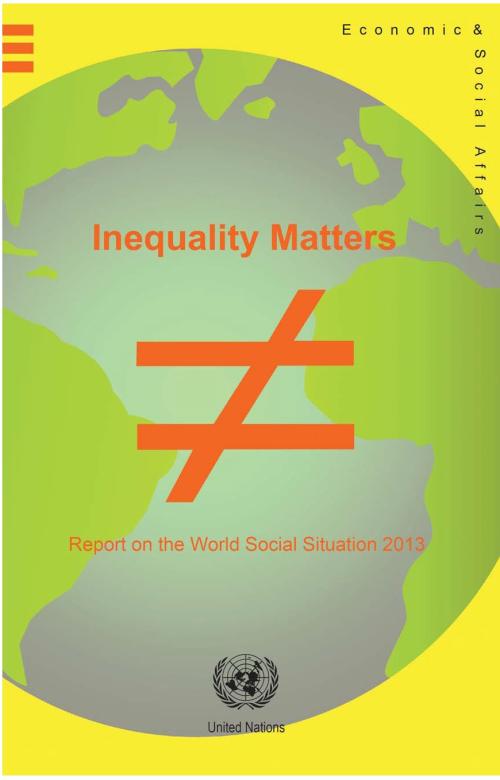
The 2013 Report on World Social Situation: Inequality Matters brings attention to inequality, with a particular focus on policies and the disadvantaged social groups. Tracing the recent trends and the consequences of inequality, the Report shows that inequality matters not only for people living in poverty, but also for the overall wellbeing of society at large.
The Report further demonstrates that growing inequality is neither destiny nor a necessary price to pay for economic growth. It explains the consequences of high inequality and further examines the experience of some countries that have defied the general trend and have managed to reduce inequality, showing that…
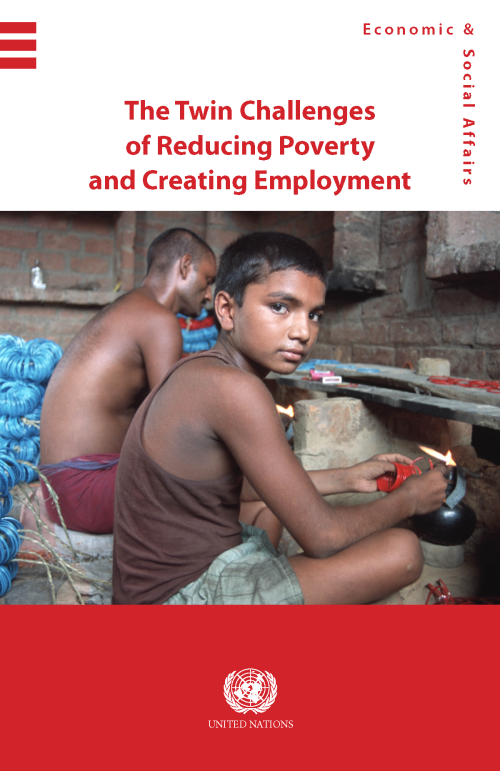
This E-publication is based on papers presented at two Expert Group Meetings (jointly organized by DSPD and the ILO) that brought together specialists to undertake a review of progress in eradicating poverty and to analyse policy responses to the global jobs crisis in different countries and regions of the world. It calls for a reorientation of macroeconomic policies from the current heavy emphasis on short-term stability to the promotion of sustained, inclusive and equitable growth. It stresses the need for the integration of social and economic policies to enable the attainment of people-centred development outcomes.
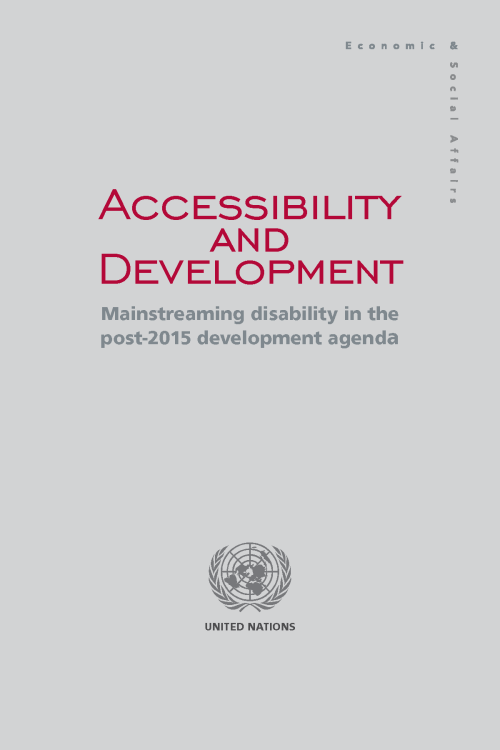
The publication reviews the concept of accessibility and its role in achieving inclusive and sustainable development. It propositions that accessibility be, not only a means and a goal of inclusive development, but also an enabler of an improved, participative economic and social environment for all members of society, including persons with disabilities.
Three key issues are addressed in the publication: (1) Accessibility in the context of human rights and development; (2) accessibility in policy and practice; and (3) accessibility and a disability-inclusive post-2015 development agenda.
The publication reviews good practices and lessons learned from both top-down and…
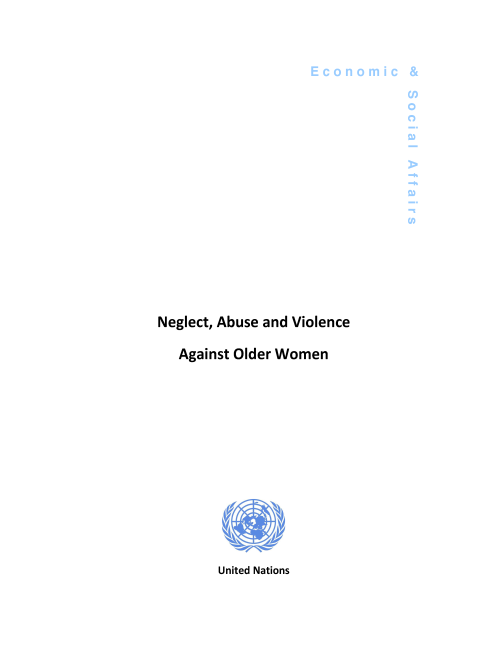
The objective of the Madrid International Plan of Action on Ageing (MIPAA) was the elimination of all forms of neglect, abuse and violence against older persons (MIPAA, 2002).
The United Nations Department of Economic and Social Affairs (UN-DESA), together with its focal point on ageing in the Division for Social Policy and Development (DSPD), began a discussion based on current research, available data and the terminology used in academic circles to describe and classify violence and abuse against older women. The majority of academic research and discourse has been conducted in developed countries, and agreement on terminology and meanings has—by no means—been clear or agreed.…
The MDG Gap Task Force Report 2013, entitled, “The Global Partnership for Development: The Challenge We Face,” tracks delivery on commitments listed under Millennium Development Goal 8—the global partnership for development— including aid, trade, debt relief, access to essential medicines and access to new technologies.
“The picture is mixed,” Mr. Ban said. “We can do better. The best way to prepare for the post-2015 era is to demonstrate that when the international community commits to a global partnership for development, it means it and directs its resources to where they are most needed.”
To deepen the global partnership of UN Member States, international organizations…
The experience from the Millennium Development Goals has shown that well-defined, objectively measurable indicators can help to maintain focus on internationally agreed development goals and targets, while keeping the world informed of achievements, problem areas and emerging issues.
Looking ahead to the post-2015 development agenda, it will be important to develop a robust monitoring system that draws on traditional data collection methods and innovations in statistics and data collection to develop a monitoring framework that can measure progress on the various thematic areas.
While it is still too early to define a set of indicators and targets for the development…
The global partnership for development, as crystallized in Millennium Development Goal 8, has played a crucial role in galvanizing international support for development. Given the global challenges at hand, there is an urgent need for true collective action from all countries to create an enabling environment for development at all levels. The latest report of the UN System Task Team on the Post-2015 UN Development Agenda provides a set of recommendations on the global partnership for development in the post-2015 era.
A renewed global partnership for development, which is broader in scope and deeper than the current one, is needed to underpin any post-2015 development agenda.…
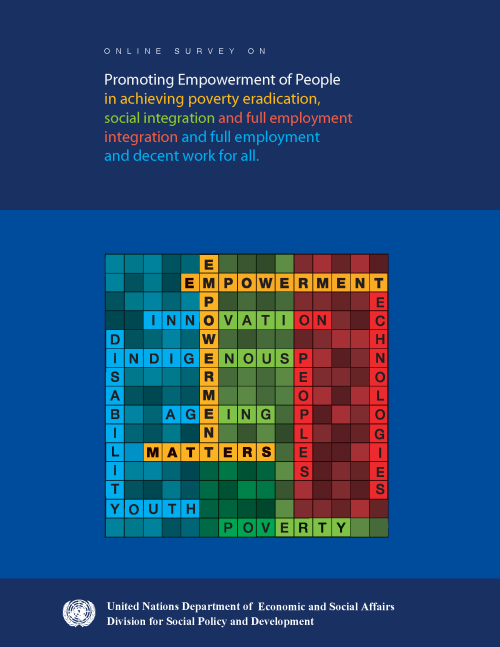
UNDESA-DSPD, from 8 August to 5 September 2012, conducted a global online survey to gather inputs for consideration by the 51st session of the Commission for Social Development (CSocD), which took place from 6 to 15 February 2013.
The survey enabled the public worldwide to respond to a set of questions that were related to the priority theme of CSocD on “Promoting empowerment of people in achieving poverty eradication, social integration and full employment and decent work for all”.
The responses collected and selected from the first question “Empowerment: What does it mean to you?” was published in a separate booklet.
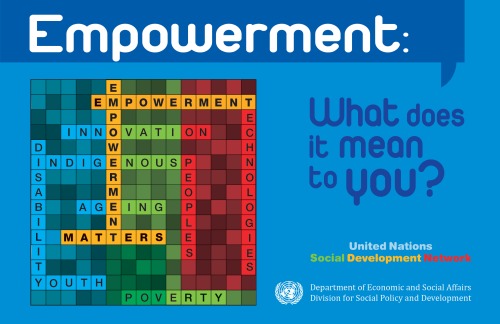
The “Definitions of Empowerment” represents a collaborative effort, made possible by the answers received from people all over the world on the Empowerment theme. Their invaluable contributions were essential for the preparation of the Empowerment Publication.
In order to collect people’s ideas and experiences, the Division for Social Policy and Development (DSPD) of UNDESA launched an on-line survey on “Promoting Empowerment of People”.
We were glad to receive tens and tens of responses from young individuals, persons with disabilities, older persons, and people working for various institutions and organizations committed to social development issues. Their keen interest…
In its 2012 Report, the MDG Gap Task Force has had difficulty identifying areas of significant new progress towards delivering on commitments to the Global Partnership for Development, and for the first time there are signs of backsliding. The volume of official development assistance (ODA) fell for the first time in many years, obstacles to exports from developing countries are on the rise, and numerous developing countries are facing debt difficulties.
With less than three years until 2015, there is no apparent commitment by donor Governments to reverse the trend in time, and it is likely that fewer MDGs will be reached in fewer countries as a result.
The Report finds…
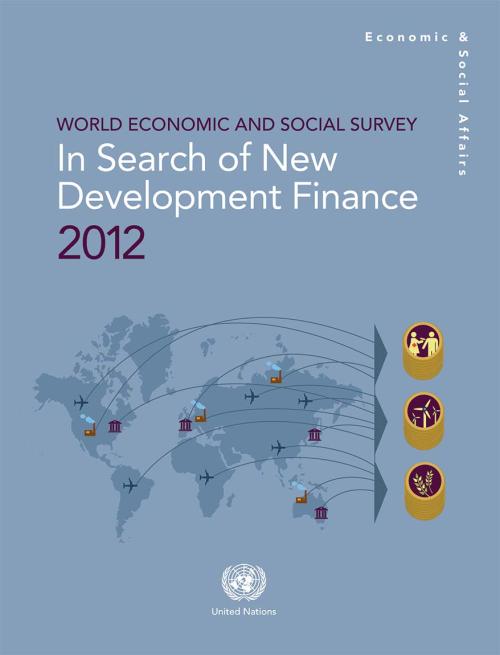
The financial needs of developing countries have long outstripped the willingness and ability of donors to provide aid. Addressing this challenge, the survey proposes an international tax, combined with other innovative financing mechanisms, to raise more than $400 billion annually for development and global challenges such as fighting climate change.
Launched on 5 July, the survey reveals that in the midst of difficult financial times, many donor countries have cut back on development assistance. In 2011, for the first time in many years, aid flows declined in real terms.
“We are suggesting various ways to tap resources through international mechanisms, such as…
The United Nations has updated a set of guidelines to prevent double taxation between countries, as well as to avoid tax evasion, which costs countries $3.1 trillion every year.
The UN Model Double Taxation Convention between Developed and Developing Countries (the UN Model) is used by countries as a basis for negotiation of their bilateral tax treaties.
Double tax treaties are agreements to prevent taxing income twice by allocating taxing rights over this income between two countries. These types of treaties play a key role in encouraging investment and technology transfer, while allowing governments to retain taxing rights over the money that comes from those investments…
 Welcome to the United Nations
Welcome to the United Nations